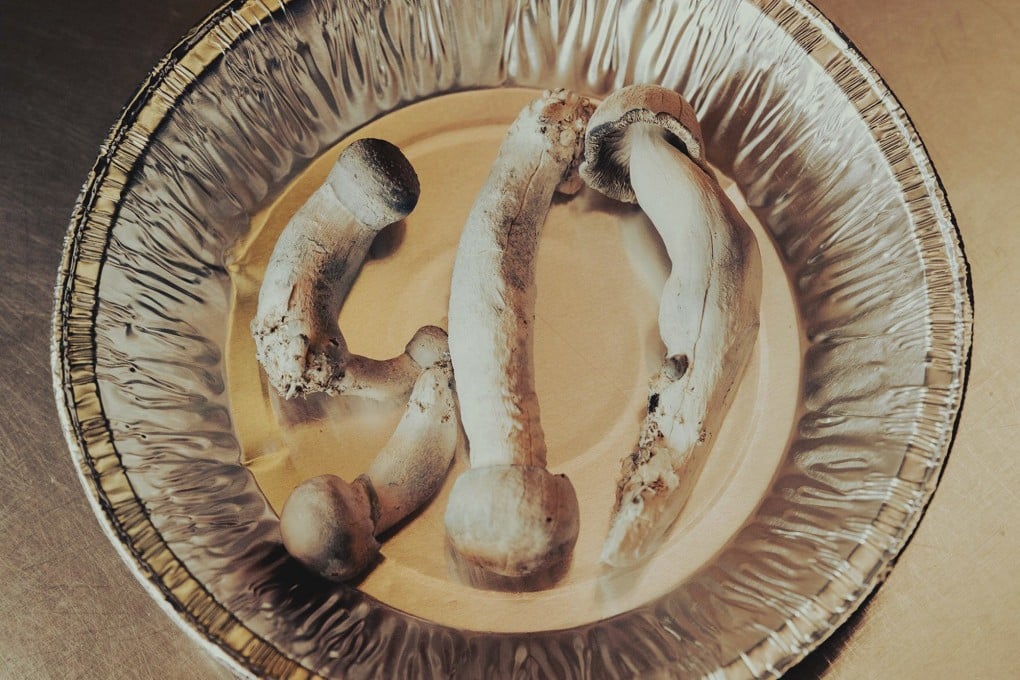The magic mushroom pill business goes into overdrive. Could profits come before patient health?
- Psychedelics are now a mainstream treatment for depression, PTSD and more. But, with legalisation looming, profiteering threatens to taint this nascent industry

Under the pale light of a laboratory flow hood, clad in a cleanroom suit, hat and booties, Sarah Neumann gingerly unfolds an aluminium foil packet. An iris-like pattern in dark brown powder reveals itself on the surface inside. It is a fingerprint of sorts: separate a mushroom cap from its stem and wrap it, gills down, in foil overnight, and the next morning you get this.
For mycologists collecting samples from the wild, spore prints such as these are aids to identification. For Neumann, whose work is in cultivation, they are repositories of genetic information.
In this case, the print belongs to a species called Psilocybe cubensis. Scattered in rich soil, or, better yet, manure, these genetically unique dots will develop into networks of delicate, branching threads called mycelium.
Feeding on decomposing organic matter, the mycelium will eventually send up fruiting bodies – the familiar capped forms most of us know as mushrooms – laden with a new generation of spores.

Neumann is the lead mycologist at Numinus Wellness, a Canadian company that’s a leader in the pharmaceutical industry’s least likely new subfield. For centuries, humans have foraged forest floors in search of the wild and glorious unpredictability of a psychedelic trip. Neumann’s job is to tame that chaos.
